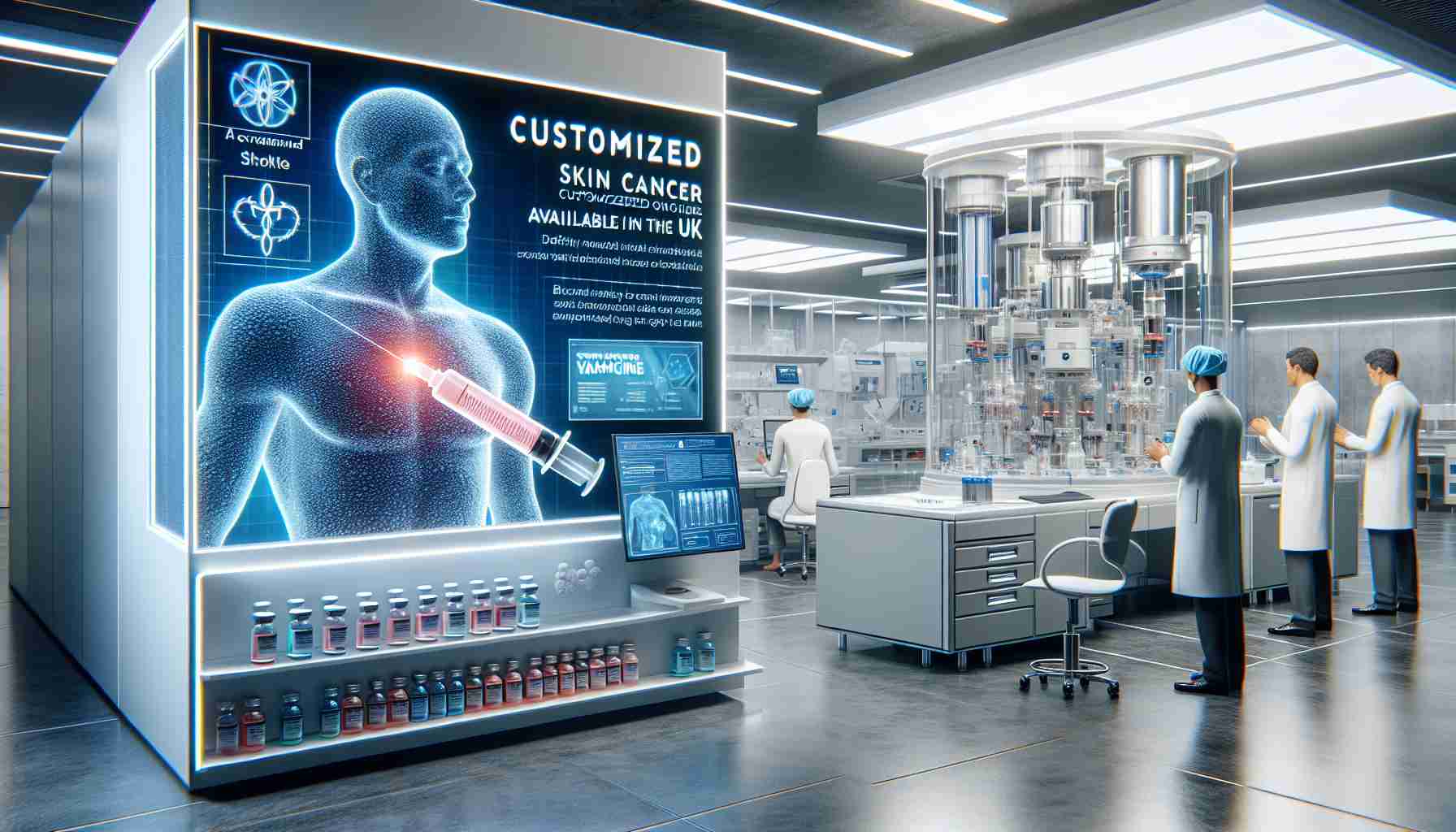Revolutionizing Melanoma Treatment with Personalized Medicine
In a groundbreaking stride in cancer therapy, UK patients are set to experience a personalized skin cancer vaccine, echoing the customized craftsmanship of a gourmet meal at a top-tier restaurant. Scientists are harnessing mRNA technology, which gained recognition for its role in COVID-19 vaccines, to formulate this individualized medicine, sparking hope for a potential cure for melanoma.
The Promise of Personalized Immune Response
This treatment involves meticulous genetic mapping of a patient’s tumor to design a vaccine that uniquely targets their cancer profile. The vaccine, formally referred to as mRNA-4157 (V940), is concocted to provoke a potent immune response against up to 34 specific tumor neoantigens, increasing the chances of staving off melanoma recurrence.
Evidence of Enhanced Effectiveness
Preliminary outcomes from combination therapy, integrating this custom vaccine with the immunotherapy drug pembrolizumab, indicate a remarkable reduction by nearly half the risk of disease progression or death. These findings stem from a phase two trial involving pharmaceutical titans Moderna and MSD, shaping the launch of a pivotal phase three trial, conducted by the esteemed University College London Hospitals NHS Foundation Trust.
UK Participation in a Global Effort
With the aspiration to enroll over a thousand participants worldwide, the UK branch aims to attract upwards of 70 patients across several major cities. These individuals will partake in a regimen of the vaccine and pembrolizumab, with side effects comparable to those of common vaccines like flu shots.
The trial’s groundbreaking approach extends beyond melanoma, with explorations into therapies for other cancers such as lung, bladder, and kidney. This tailored treatment signifies not only a leap in medical innovation but also a bespoke beacon of hope for those affected by melanoma.
Importance of Personalized Cancer Vaccines
Personalized cancer vaccines represent a significant advancement in the field of oncology, as they are designed to be highly specific to an individual’s tumor. The traditional one-size-fits-all approach in cancer treatment often leads to varied patient responses and side effects. Personalized vaccines aim to harness the body’s immune system to fight cancer more effectively, as they stimulate an immune response specifically targeting the unique mutation profile of an individual’s cancer cells.
Key Questions and Answers:
– Q: What is the significance of mRNA technology in developing cancer vaccines?
A: mRNA technology serves as a platform to instruct cells to produce proteins that mimic tumor antigens, thereby stimulating an immune response. Its deployment in COVID-19 vaccination has demonstrated the speed at which mRNA vaccines can be developed and their potential efficacy, leading the way for similar strategies in cancer treatment.
– Q: Why is it crucial to map a patient’s tumor genetics for personalized vaccines?
A: Tumor genetic mapping is essential because it reveals the specific mutations, or neoantigens, present in a patient’s cancer. These neoantigens are then used to tailor the vaccine to target the cancer more precisely, potentially improving treatment outcomes.
Key Challenges and Controversies:
Developing personalized vaccines is costly and resource-intensive as it requires sequencing individual tumors and manufacturing unique vaccines for each patient. Additionally, ensuring that such innovative therapies are accessible and affordable for all patients remains a challenge.
Another point of contention is the regulatory complexity of approving treatments that are, by definition, unique to each individual. The logistics of processing, validating, and administering such personalized treatments may necessitate new frameworks.
Advantages and Disadvantages:
The primary advantage of personalized cancer vaccines is the potential for higher efficacy with fewer side effects compared to traditional treatments. These vaccines are tailored to an individual’s specific cancer, possibly leading to better disease control and longer survival.
However, disadvantages include high costs, the complexity of vaccine production, and logistics. In the early stages, accessibility could be limited, and long-term effectiveness and potential unforeseen side effects are still under investigation.
Should you be interested in more resources on the topic of cancer research and personalized medicine, I recommend visiting the following link: Cancer Research UK. This organization is at the forefront of cancer research and may provide additional up-to-date information regarding the advancement of cancer treatments, including personalized vaccines.

